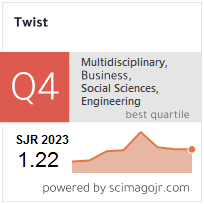Nano-Organometallic Compounds as Prospective Metal Based Anti-Lung Cancer Drugs
Biochemical and Molecular Docking Studies
Keywords:
Cytotoxicity, Mutagenic potential, A549 cell lines, Metal complexes nanoparticles, Molecular dockingAbstract
The great success of cis-platin as a chemotherapeutic agent considerably increased research efforts in inorganic biochemistry to identify more metallic drugs having the potential of treating lung cancer. Copper is a micronutrient essential to all organisms and is a critical impact in redox chemistry, growth and development. In biology copper has a crucial role for the function of several enzymes and proteins involved energy metabolism, respiration and DNA synthesis, notably cytochrome oxidase, super dismutase, ascorbate oxidase and tyrosinase. This study determined the selective cytotoxicity and mutagenic potential of two Schiff-base complexes nanoparticles of copper salts against lung cancer cell lines, "A549 cell lines" (Invitro study) and showed the toxicity action observed against experimental animals (invivo studies). The more effective and probable binding modes between the studied metal complexes NPs with different active sites of lung cancer (the selected protein 5HG5) receptors were investigated using molecular docking studies.
Downloads
Downloads
Published
Issue
Section
License
Copyright (c) 2023 TWIST

This work is licensed under a Creative Commons Attribution-NonCommercial-ShareAlike 4.0 International License.











